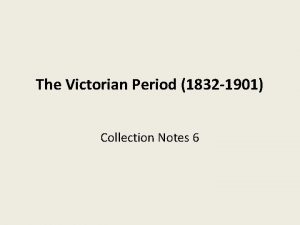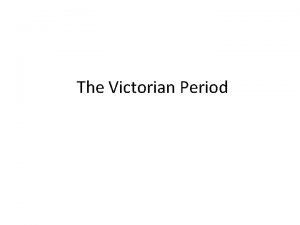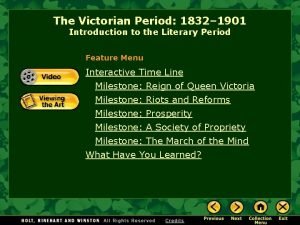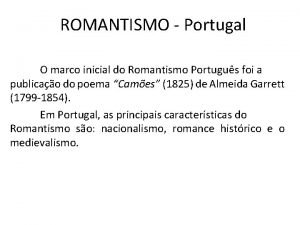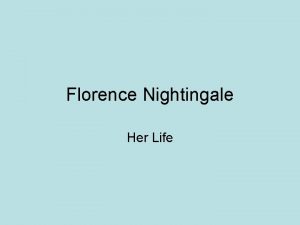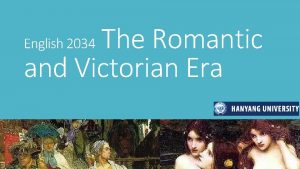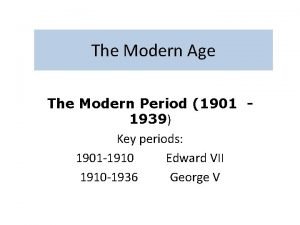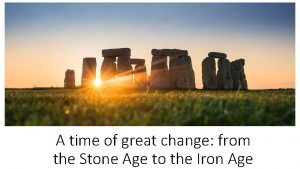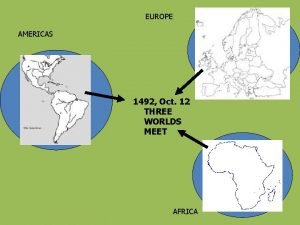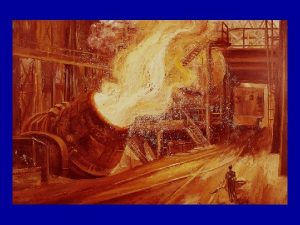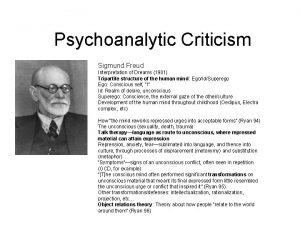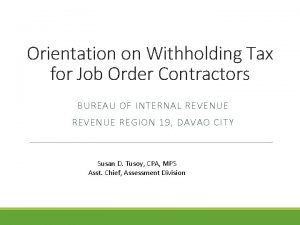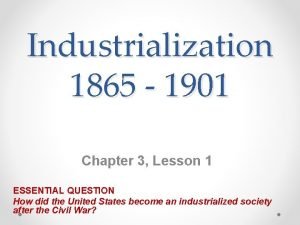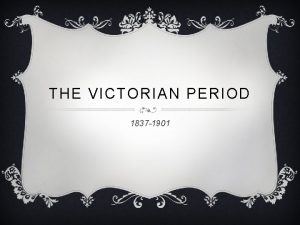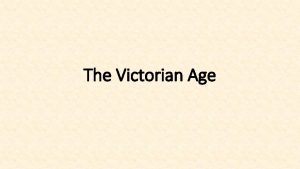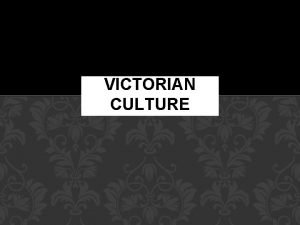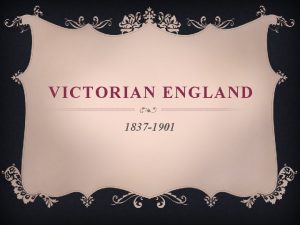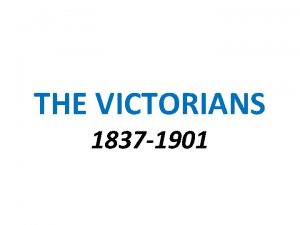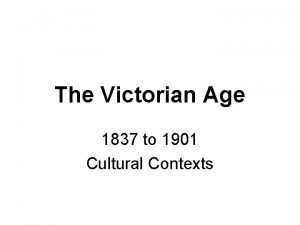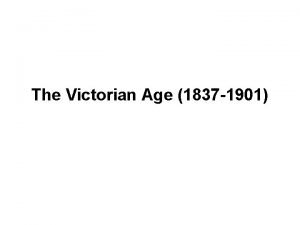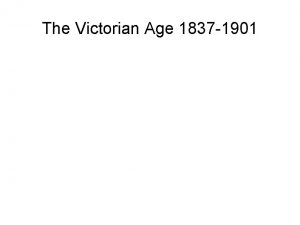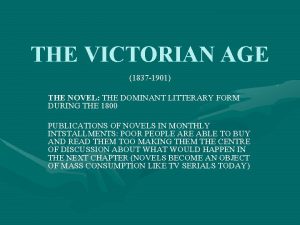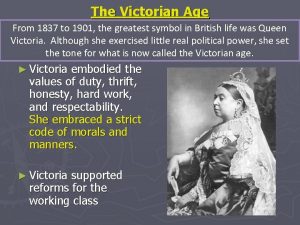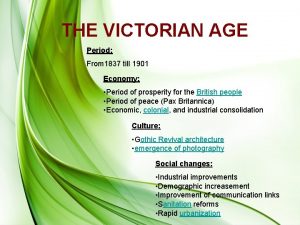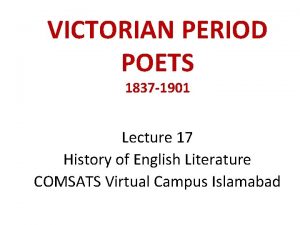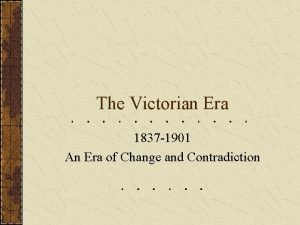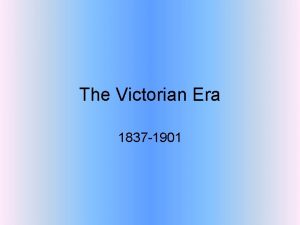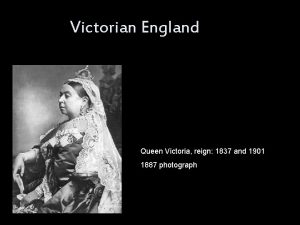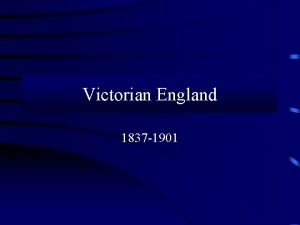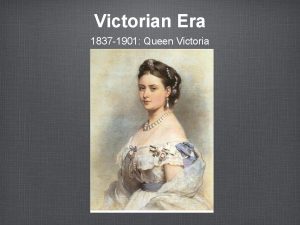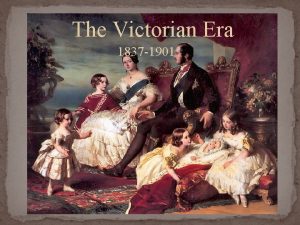The Victorian Age 1837 1901 The Victorian Age
























- Slides: 24

The Victorian Age (1837 -1901)

The Victorian Age 1. Queen Victoria q Victoria became queen at the age of 18 in 1837. q Her reign was the longest in the British history. Franz Xavier Winterhalter, The young Queen Victoria, 1842

The Victorian Age 1. Queen Victoria q In 1840 she married a German prince, Albert of Saxe-Coburg. q They had nine children and their modest family life provided a model of respectability. Franz Xavier Winterhalter, The young Queen Victoria, 1842 q During this time Britain changed dramatically.

The Victorian Age 2. The growth of the British Empire throughout the World, 19 th century, Private Collection. • England grew to become the greatest nation on earth “The sun never sets on England”.

The Sun Never Sets on the British Empire

Britain Is Everywhere!

British Empire

The Victorian Age 2. The growth of the British Empire • British Empire included Canada, Australia, New Zealand, Hong Kong, Singapore, South Africa, Kenya, and India. • Great Britain imported raw materials such as cotton and silk and exported finished goods to countries around the world.

The Victorian Age 2. The growth of the British Empire throughout the World, 19 th century, Private Collection. • By the mid-1800 s, Great Britain was the largest exporter and importer of goods in the world. It was the primary manufacturer of goods and the wealthiest country in the world.

• Poem by Rudyard Kipling • Offered justification for imperialism • White imperialist had a moral duty to educate less developed people v. Spread western ideas, customs & religions to people in Africa & Asia

The Victorian Age 2. The growth of the British Empire throughout the World, 19 th century, Private Collection. • Because of England’s success, the British felt it was their duty to bring English values, laws, customs, and religion to the “savage” races around the world.

§India was Jewel in the Crown of English Colonies from 1857 § 300 million people= a huge potential market §Indian business competition was prohibited §Major supplier of Raw materials (Cotton, opium)


The Victorian Age 3. An age of social and political reforms • 1832: The First Reform Act granted the vote to almost all male members of middle-class. • 1833: The Factory Act regulated child labour in factories. • 1834: Poor Law Amendment established a system of workhouses for poor people.

The Victorian Age 3. The woman’s question • Women’s suffrage did not happen until 1918. Suffragettes The Rights of Women or Take Your Choice (1869)

The Victorian Age 4. Positive aspects of the age Industrial revolution: factory system emerged; for the first time in Britain’s history there were more people who lived in cities than in the countryside. Workers in a Tobacco Factory Technological advances: introduction of steam hammers and locomotives; building of a network of railways.

The Victorian Age 4. Positive aspects of the age Economical progress: Britain became the greatest economical power in the world; London is the centre of world trade Workers in a Tobacco Factory

The Victorian Age 5. Crystal Palace was built for the Great Exhibition of 1851; it was destroyed by fire in 1936. The Crystal Palace

The Victorian Age 6. Crystal Palace It was made of iron and glass, exhibited hydraulic presses, locomotives, machine tools, , and steamboat engines. It had a political purpose it showed British economic supremacy in the world. The Crystal Palace

The first underground in London 1863 and the second in Budapest in 1895 and the second

The Victorian Age 7. Negative aspects of the age Lack of hygienic conditions: houses were overcrowded, most people lived in miserable conditions; poor houses shared water supplies. Pollution in towns due to factory activity. Homeless Boys (1880) London in 1872

The “Victorian Compromise” * political parties in the House of Commons: § Tory Party Conservative Party under Benjamin Disraeli. § Whig Party Liberal Party under William Gladstone.

Benjamin Disraeli (1804 -1881) A dandy and a romance novelist. * A brilliant debator. * first & only Prime Minister of Jewish parentage. * A strong imperialist. § “Greater England” * foreign policy. * Respected by Queen Victoria.

William Gladstone (1809 -1898) An active legislator and reformer. * Known for his populist speeches. * Queen Victoria couldn’t stand him. * Supported a “Little England” foreign policy. *
 1837 to 1901
1837 to 1901 Victorian age 1832 to 1901
Victorian age 1832 to 1901 The victorian age 1832 to 1901 unit test
The victorian age 1832 to 1901 unit test The victorian period (1832–1901)
The victorian period (1832–1901) The victorian period (1832–1901)
The victorian period (1832–1901) Qual o marco inicial do romantismo
Qual o marco inicial do romantismo Florence nightingale 1837
Florence nightingale 1837 Movimento bahiense 1837
Movimento bahiense 1837 During the free banking era between 1837 and 1863
During the free banking era between 1837 and 1863 Movimento bahiense 1837
Movimento bahiense 1837 Romanticism vs victorianism
Romanticism vs victorianism Victorian age and modern age
Victorian age and modern age Iron age dates
Iron age dates Iron age bronze age stone age timeline
Iron age bronze age stone age timeline Ancient egypt floral design
Ancient egypt floral design Middle ages floral design
Middle ages floral design British empire 1901
British empire 1901 Numberblocks 1901
Numberblocks 1901 1896-1901
1896-1901 Poblogaeth cymru 1901
Poblogaeth cymru 1901 Industrialization (1865 to 1901 worksheet answers key)
Industrialization (1865 to 1901 worksheet answers key) Freud 1901
Freud 1901 Job order tax
Job order tax Panitikan noong panahon ng amerikano
Panitikan noong panahon ng amerikano Industrialization 1865 to 1901
Industrialization 1865 to 1901

